An average day in the life of an adult raccoon is busy. Running around, scavenging, maybe even knocking over your trash can. They can be frustrating little trouble-makers, but they are a special species. They are silly, playful, tenacious beings. They feel, cry, and enjoy life. For three little raccoons, freedom and living in the wild will never come. For Abbot, Costello and Napoleon life has been cut short.
As young kits a man found the three babies in his barn. His daughter-in-law decided she wanted to try to raise them because they were cute. We’ll never know if mom was nearby or not. She could have just stepped out to forage and come back, frantic to discover her babies were missing. This woman illegally kept the three babies for three or four days before finding out who to send them to in order to have them cared for properly. It is illegal in the state of Maine to attempt to raise any wild animal without proper licensing. These laws are in place to protect the people as well as the animals, and the fines can be up to and above $1,000 per animal.
On May 13th Misfits Rehab, a non-profit rescue organization out of Turner, Maine, took over the care of Abbot, Costello and Napoleon. When the babies were brought into Misfits Rehab the woman who had “rescued” them assured the rehabbers that she had worn gloves and washed her hands after handling them. She insisted she was well aware of the risks of rabies but her first thought was to get them fed to save their lives.
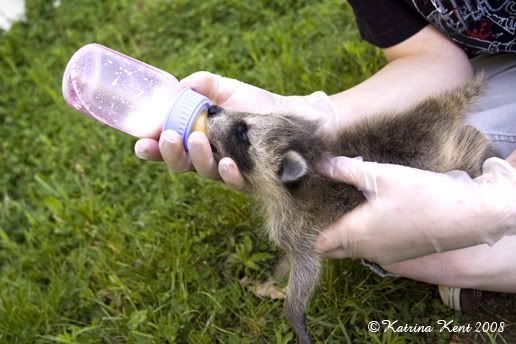
For a human to contract rabies they usually have to be bit by an animal with the virus, however it can be passed through saliva getting into a human’s eyes, mouth or a wound. Raccoons, bats, fox and skunks are the most common carriers of rabies and are considered rabies vector species, but are not the only animals that can contract rabies.
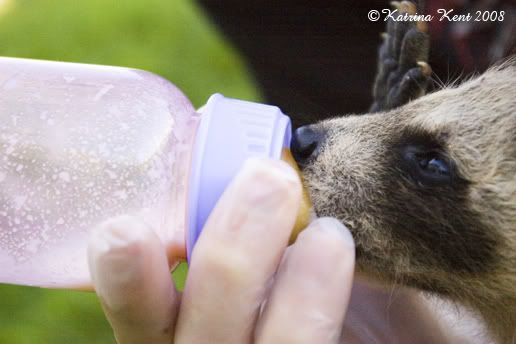
The rehabber assured her that for a few weeks they would be in quarantine, which is required for any rabies vector species that comes into the rescue, and if they showed signs of the virus she would be informed immediately. A rehabber was assigned to raise these babies. She began waking up every few hours throughout the night to feed them, burp them and care for them. Time, energy and money were spent with the hopes of releasing these babies back into the wild where they belong.
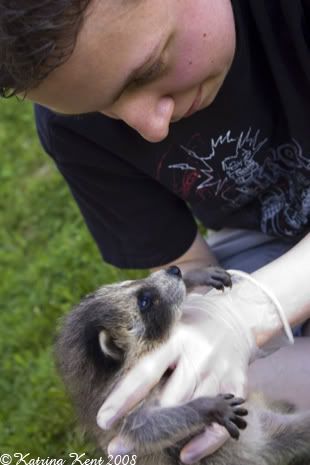
Two weeks after handing the babies over to Misfits Rehab a relative of the woman who “rescued” the little ones found a dead female lactating raccoon on the property. He called a game warden to come pick it up and admitted that the woman had not told the truth before. He told the game warden that at least ten people had petted, kissed and held the baby raccoons in the few days the family had had them in their possession, and if the raccoons had rabies it could have been passed to a human in that time. Because this female was dead they were worried that she may have been the mother of Abbott, Napoleon and Costello, and may have died of rabies.
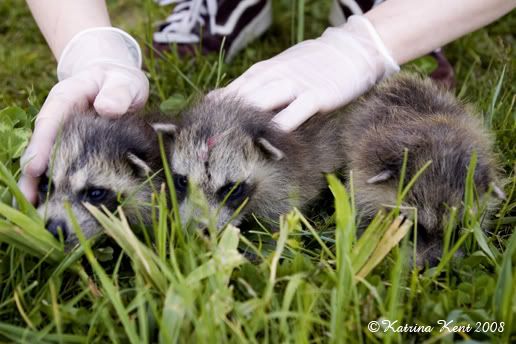
The Center for Disease Control requires rabies vector species to be tested for rabies if there is any chance of an exposure and if it could have passed it to a human. Rabies is a virus that is received from an infected animal through its saliva entering a healthy animal through a bite or saliva contact. The virus then incubates in the body and then makes its way through the nervous system and ends in the brain. After it reaches the brain it multiplies rapidly and moves into the salivary glands where it is then able to infect another animal through its saliva. Rabies can be passed through saliva up to 14 days prior to any signs of illness, and the only way for scientists to test animals for it is to have access to the brain.
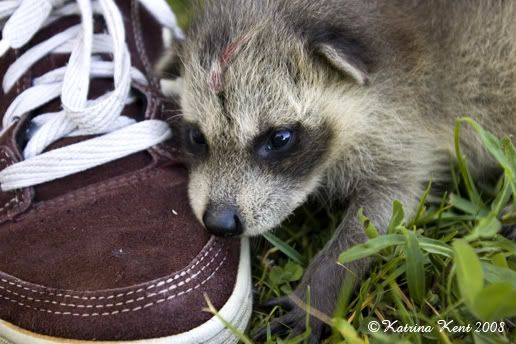
So at just four weeks old, these three little infants had to be euthanized and decapitated. Just a few days after the last of the babies opened his eyes for the first time, they have been closed again. Forever.
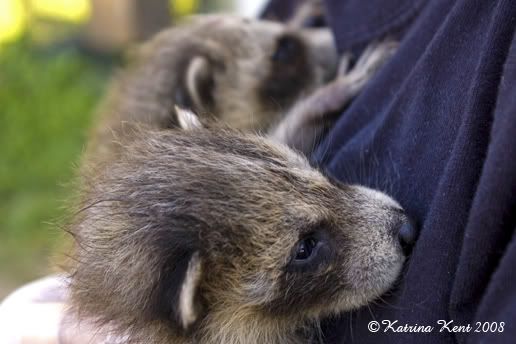
We have a phrase, in the wildlife rescue world; “If you care, leave them there”. These three little ones had never done anything wrong. They were the unlucky victims of human involvement. The tests came back negative. They were healthy raccoons, killed because one woman didn’t think before letting friends and family handle them. If she had used gloves, if she hadn’t lied, if no one else had touched the babies, then their lives could have been long and wonderful. In the wild a raccoon usually lives up to six years. My goal is to make it so they didn’t die in vain. If you care about wildlife, please don’t touch it. You put yourself at risk, as well as the animal. And in the case of Abbott, Costello and Napoleon the consequence of someone taking this risk, was death.
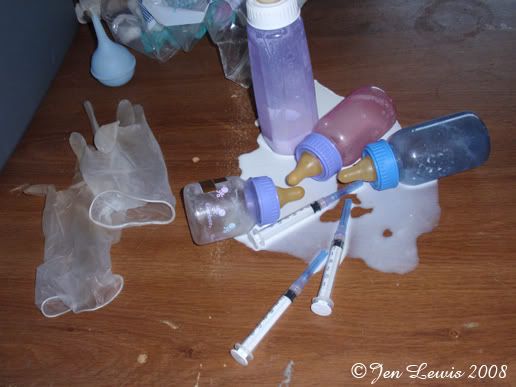

Well said. It's just like we were always taught never to touch bird's nests or eggs because the mother wouldn't take care of them after. This is so incredibly sad, it breaks my heart that more human stupidity has ruined the lives of beautiful wild animals.
ReplyDeleteUnfortunately a lot of people want to "help" babies and end up doing more harm than good. A rehabber I know raised a fawn a few years ago because no matter what she said she couldn't get people to leave it alone. The entire neighborhood was "checking" on the baby because she had been "abandoned" and when the rehabber said, "If everyone would leave her alone the mom will return" people didn't believe her. Unfortunately that mother deer probably returned from foraging and was devastated because her baby wasn't where she left her.
ReplyDelete